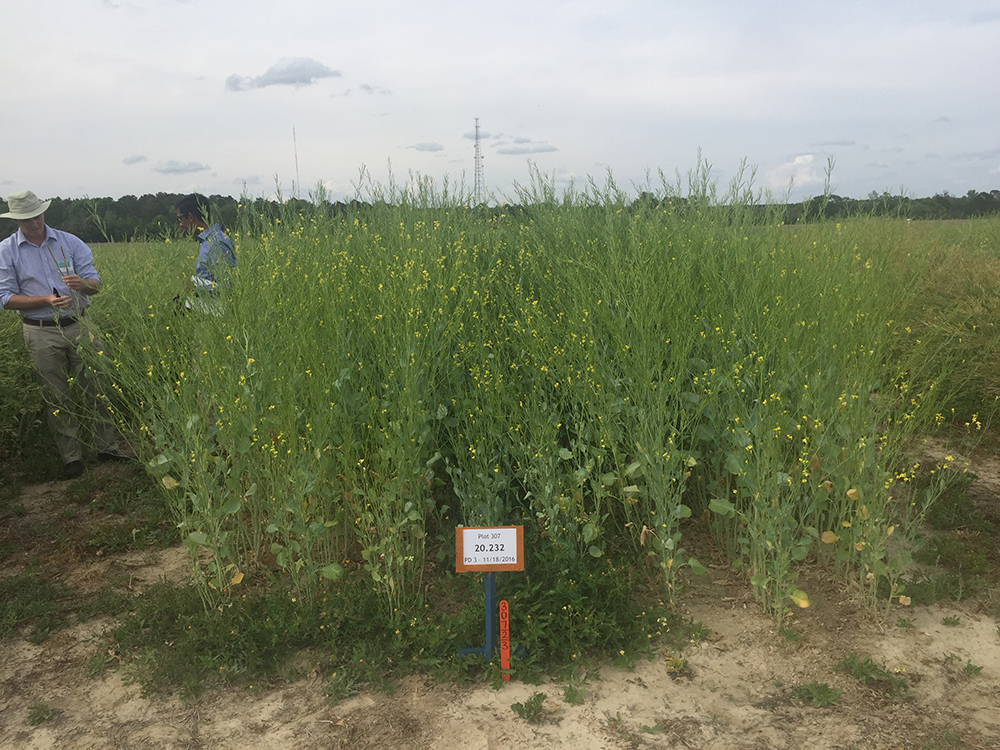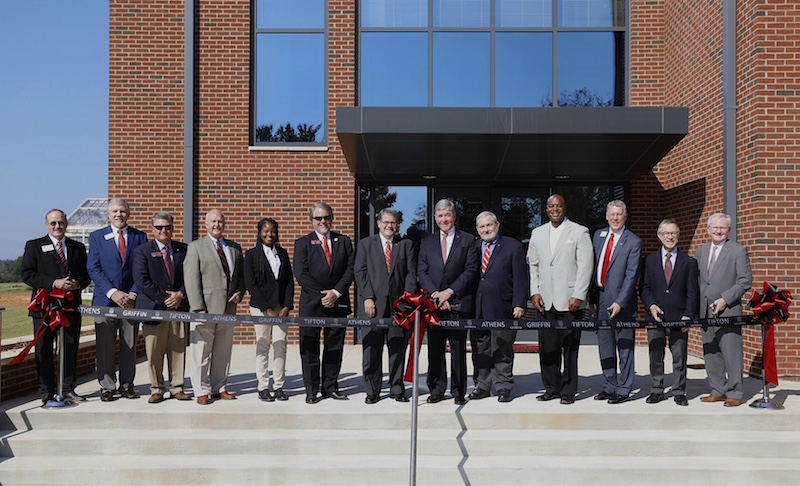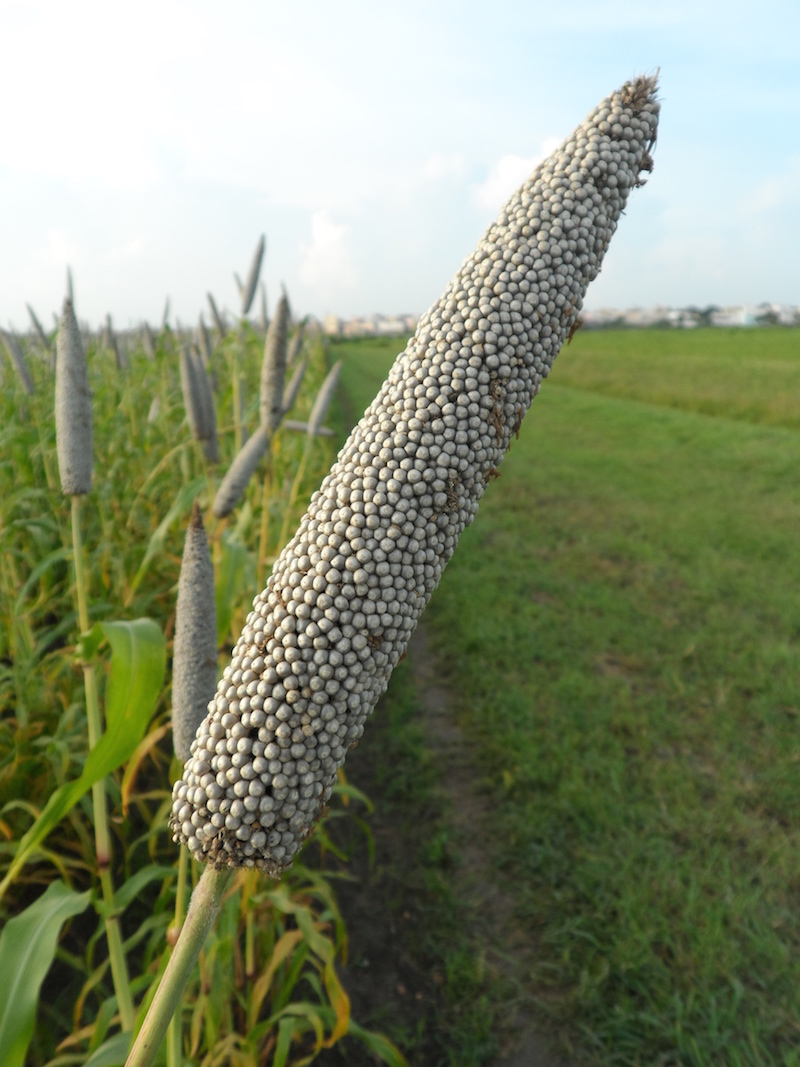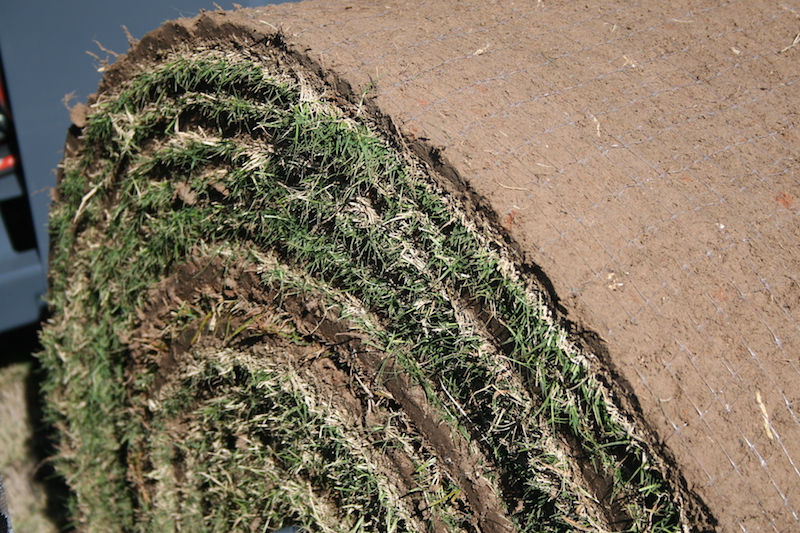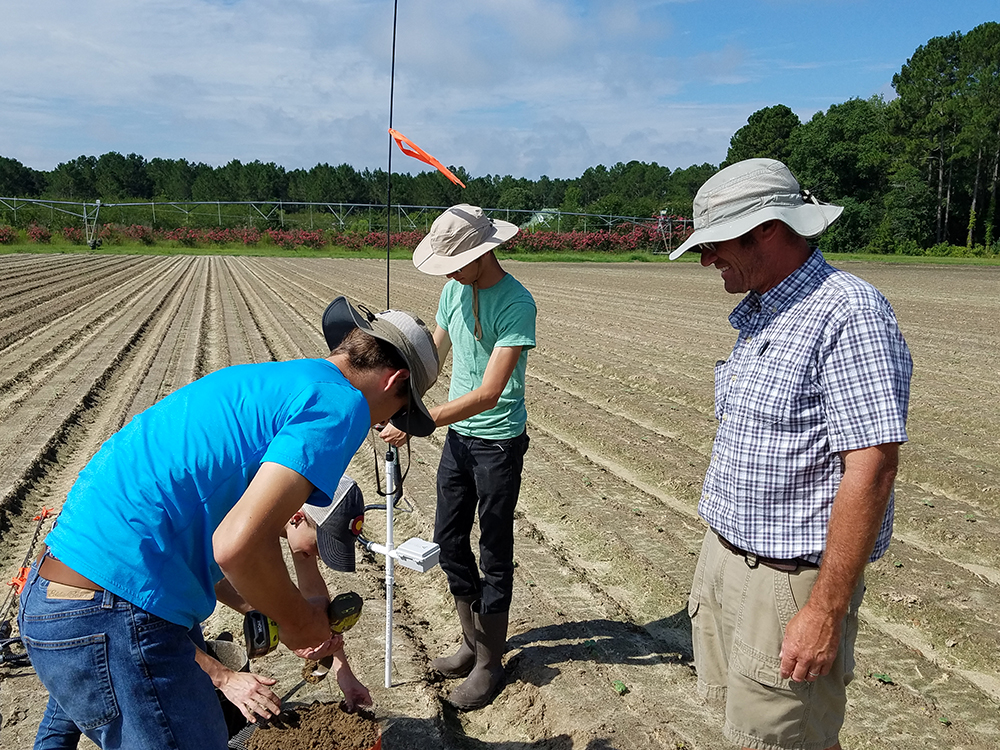 CAES News
CAES News
Testing the water: UGA Extension team studying agricultural water use in Georgia
As part of an irrigation efficiency study by University of Georgia Cooperative Extension, a 29-person team of social scientists, agricultural economists, climatologists, agricultural engineers and UGA Extension agents from the UGA College of Agricultural and Environmental Sciences is studying agricultural irrigation in order to increase the water-use efficiency in row crops common to southern Georgia.

